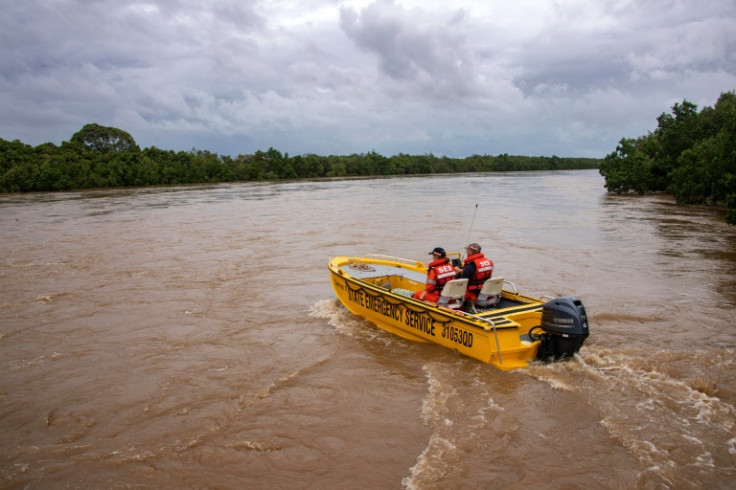Rescue Teams Evacuate Flood-Ravaged Australian Town

Rescue teams on Tuesday evacuated a flood-ravaged town in northeastern Australia, racing to airlift hundreds of people to safety before they run out of food and water.
Surging floodwaters have cut off the town of Wujal Wujal in Queensland state, engulfing houses, washing away roads and forcing some trapped residents to shelter on roofs.
The largely Aboriginal settlement, in one of the most disadvantaged regions in Australia, has borne the brunt of a major flooding disaster that unfolded in the wake of a tropical cyclone.
Queensland police disaster coordinator Shane Chelepy said rescue helicopters were preparing to evacuate the entire town of between 250 and 300 people.
"We know that we've only got about another day's worth of water in that town," he told national broadcaster ABC on Tuesday.
"We've had impacts to food, power, overall water, and that's why we're doing that evacuation today."
Australian Prime Minister Anthony Albanese said Tuesday that four military helicopters -- including two heavy-lifting Chinooks -- had been deployed to help the evacuation.
An earlier rescue attempt was abandoned on Monday afternoon because it was "too dangerous to get the choppers through", the Wujal Wujal Aboriginal Shire Council said.
Queensland has been battered by damaging winds and driving rain in the wake of Tropical Cyclone Jasper, which barrelled in off the Coral Sea late last week.
Flood damage has been reported along an expanse of coastline that stretches about 400 kilometres (250 miles) across the state's tropical northern region.
With floodwaters slowly receding following days of pummelling rain, disaster response crews are only now coming to grips with the full extent of the devastation.
Queensland Treasurer Cameron Dick has already predicted the floods would have a "billion-dollar impact" on the state.
Researchers have repeatedly warned that climate change amplifies the risk of natural disasters such as bushfires, floods and cyclones.
© Copyright AFP 2024. All rights reserved.











